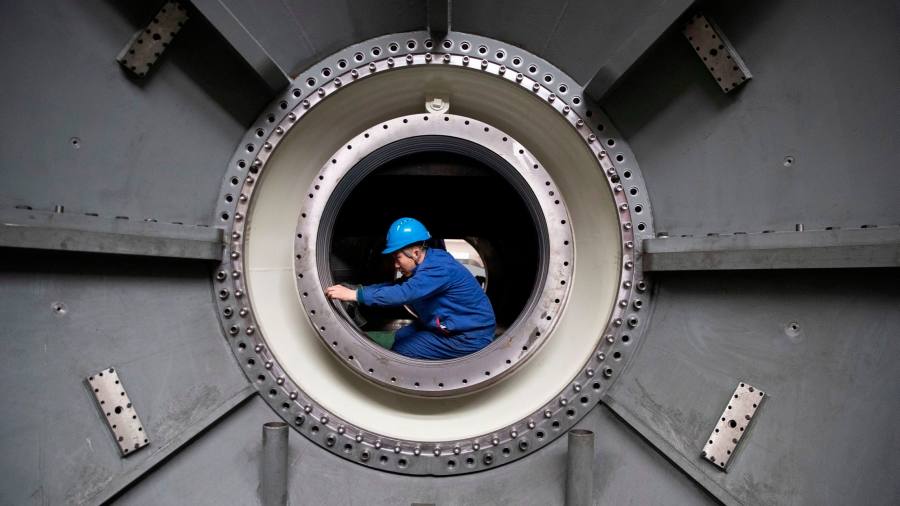
Receive free Chinese economy updates
We’ll send you a myFT Daily Digest email rounding up the latest Chinese economy news every morning.
Activity in China’s manufacturing sector contracted for a fifth straight month in August, according to an official survey, adding pressure on policymakers in the world’s second-largest economy to take action to shore up growth.
The country’s manufacturing purchasing managers’ index was 49.7 for the month. A reading of below 50 indicates contraction compared with the previous month. The non-manufacturing PMI, which covers services and industries such as agriculture and construction, was 51.
A series of disappointing data has fuelled concerns about China’s economy, where a widely anticipated rebound following the lifting of Covid-19 restrictions at the start of 2023 has failed to fully materialise.
China’s property sector, which typically accounts for more than a quarter of the overall economy, has slowed markedly because of a two-year liquidity crisis, while weaker global consumption has weighed on the country’s previously booming export sector. Consumer prices in July fell year on year for the first time since early 2021.
Although Thursday’s manufacturing data remained shy of expansionary territory, it was slightly higher than last month’s reading of 49.3 and exceeded forecasts across analysts polled by Reuters. The non-manufacturing data, by contrast, disappointed expectations.
Sheana Yue, China economist at Capital Economics, suggested the data showed “a slight improvement in economic activity in August” but noted that “overall economic momentum remains weak and more policy support is needed to avoid a renewed slowdown later this year”.
Beijing has set its lowest economic growth target in decades, at 5 per cent for the full year, and taken cautious steps to support the economy. Policymakers have sought to boost consumption, which remains weak, but stopped short of any major stimulus. Authorities last week unexpectedly held a core five-year lending rate amid concerns that deeper cuts would put pressure on the banking system.
This week the cities of Guangzhou and Shenzhen eased mortgage conditions for first-time buyers, a move that could help a property sector that has been hit by dozens of defaults, construction delays and falling transactions.
Country Garden, China’s biggest private developer, missed bond payments this month and on Wednesday disclosed losses of $7bn in the first half of the year. Missed payments at Zhongrong, a major Chinese investment company, have sparked fears that the crisis in real estate might spill over into the country’s savings products.
Goldman Sachs analysts noted that within the non-manufacturing survey, services areas such as transport, accommodations, catering, sports and entertainment were above 55, which they said “suggests that activity in other services industries such as property may have deteriorated further in August”.
Chinese stocks fell on Thursday following the latest PMI readings, with the CSI 300 index down 0.6 per cent and a real estate sub-index sliding more than 4 per cent.
Additional reporting by Hudson Lockett in Hong Kong